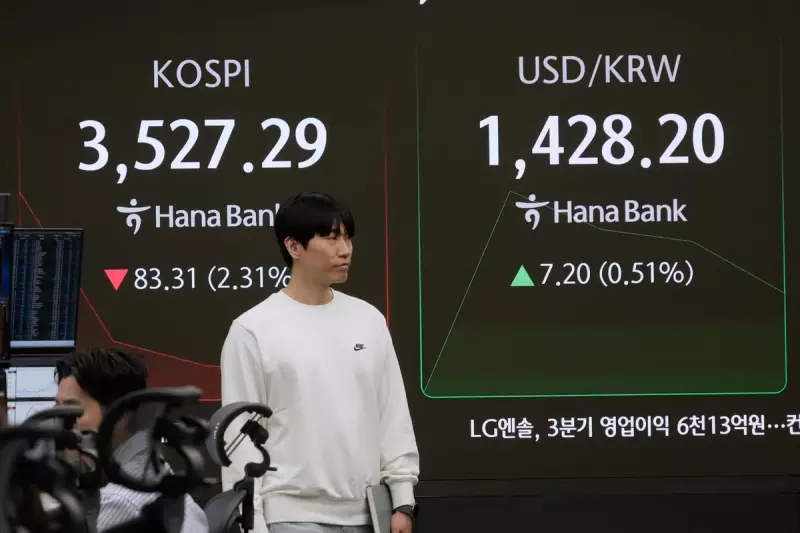
Asian financial markets experienced significant turbulence following alarming comments from former US President Donald Trump about imposing aggressive trade measures against China. The remarks, made during a Wall Street Journal interview, have reignited fears of renewed trade tensions between the world's two largest economies.
Market Reaction Across Asia
Financial centres across the Asian region registered notable declines as investors digested Trump's proposal to potentially impose tariffs of 60% or higher on Chinese imports. The warning triggered immediate selling pressure in several key markets, particularly affecting export-dependent economies with strong manufacturing ties to China.
Market analysts in Bangkok reported heightened anxiety among institutional investors, with many adopting a cautious "wait-and-see" approach amid the developing political situation in the United States.
The Wall Street Interview Fallout
During his conversation with Wall Street Journal representatives, Trump outlined his vision for dramatically restructuring US-China trade relations should he return to office. The former president's comments suggested a more aggressive stance than during his previous administration, which already featured significant trade barriers against Chinese goods.
Economic experts have expressed concern that such measures could trigger retaliatory actions from Beijing, potentially sparking a full-scale trade war that would disrupt global supply chains already strained by geopolitical tensions and pandemic-related disruptions.
Potential Global Economic Impact
The prospect of renewed US-China trade hostilities comes at a delicate time for the global economy. Many nations are still grappling with inflation concerns and sluggish growth patterns following the COVID-19 pandemic.
Financial institutions across Asia are now running contingency scenarios to assess potential exposure to US-China trade disruptions. Banking sectors in several Southeast Asian countries are particularly vulnerable given their deep integration with Chinese manufacturing networks.
Looking Ahead
As the US presidential election campaign intensifies, market watchers expect continued volatility tied to trade policy announcements from both major candidates. The situation underscores the enduring sensitivity of global markets to American political developments and their potential impact on international trade relationships.
Financial advisors are recommending diversified portfolios and increased hedging strategies for clients with significant exposure to US-China trade flows, anticipating possible market turbulence in the coming months.





